The End of the Story

To those who knew him through his work—and, if we are to believe the many tributes published in the past two months, to those who knew him intimately as well—Thompson was a strange and lovely amalgamation.
Jump to navigation Skip to content
Articles from Poet & Writers Magazine include material from the print edition plus exclusive online-only material.

To those who knew him through his work—and, if we are to believe the many tributes published in the past two months, to those who knew him intimately as well—Thompson was a strange and lovely amalgamation.
Page One features a sample of titles we think you'll want to explore. With this installment, we offer excerpts from Haunted by Chuck Palahniuk, Bitter Milk by John McManus, and The Lake, The River & the Other Lake by Steve Amick.
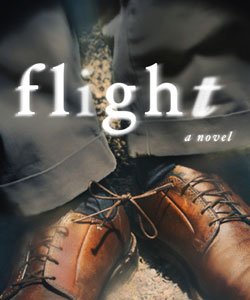
In April 2003, an agent sat down with me, pointed to my manuscript, and said the words I had been dreading: I think this should be a novel. I shuddered. I was no novelist. I was a minimalist, a votress of the goddess of gesture, a worshipper at the altar of the succinct. I was a short story writer.
When I stepped off the plane in Aspen, Colorado, in June 1997, I found a 60-year-old Hunter S. Thompson waiting for me in a convertible Cadillac blasting Norman Greenbaum’s “Spirit in the Sky” at full volume. I was terrified; he was giddy. He was playing the song because it was a part of the soundtrack put together for the film version of Fear and Loathing in Las Vegas that was scheduled to hit theaters the following summer, and he could not have been happier.
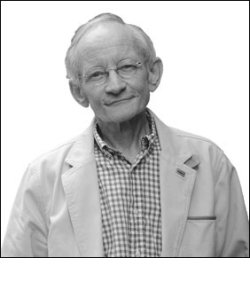
Ted Kooser, appointed the 13th poet laureate of the United States last August, launches American Life in Poetry, a weekly newspaper column featuring a poem and a brief introduction, which is distributed free to any paper wishing to publish it.
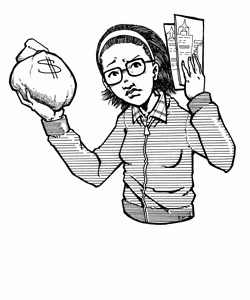
The standard recompense for winning a literary contest is typically one of the following: money, publication in a literary magazine or a book, and a certain amount of recognition, but some rather unusual awards are handed out each year that don’t fall within the usual “money plus publication” category.
The Academy gears up to celebrate the 10th annual National Poetry Month in April—an event seen, depending on one’s perspective, as either a marketing bonanza or a wonderful excuse to bring poems into the public sphere.
I am in the middle of Don Quixote—where many writers are and, according to Cervantes scholars, where every writer should be. I’m reading it because this year marks the 400th anniversary of its publication. I would like to say that I’ve finished it, but I cannot. The Quixote, as it is affectionately referred to by die-hard fans, is not something you finish. It’s something you rattle around in.
Small Press Points highlights the happenings of the small press players. This issue features Copper Canyon Press, Shambhala Publications, Other Press, Suspect Thoughts Press, and Vernacular Press.
Page One features a sample of titles we think you'll want to explore. With this installment, we offer excerpts from Pinkerton’s Sister by Peter Rushforth and Cooling Time: An American Poetry Vigil by C.D. Wright.

To celebrate the 150th anniversary of the publication of Leaves of Grass, the Washington Friends of Walt Whitman is cosponsoring a citywide festival from March 26 (the day of Whitman’s death) to May 31 (his birthday).
Literary MagNet chronicles the start-ups and closures, successes and failures, anniversaries and accolades, changes of editorship and special issues—in short, the news and trends—of literary magazines in America. This issue's MagNet features Diner, the Massachusetts Review, Night Train, the Women’s Review of Books, DoubleTake, the Oxford American, and Cranky Literary Journal.
The widely used online search engine Google recently launched a new feature that allows Web users to search within pages of published books.
Page One features a sample of titles we think you'll want to explore. With this installment, we offer excerpts from Home Land by Sam Lipsyte and The Celestial Jukebox by Cynthia Shearer.
From the beginning the founders of the Associated Writing Programs and other pioneers have argued that, through effective creative writing programs, students can attain lifelong skills of critical thinking, empathy for others, and an understanding of the creative process, the key to all innovation. The schools featured in this article—Knox College, Oberlin, and Sarah Lawrence—have been working to make undergraduate creative writing degrees a hallmark of their respective institutions for some time now.
The biweekly magazine Kirkus Reviews publishes pre-publication book reviews, offering professional opinions of approximately 5,000 titles per year. But the tables have turned on the 72-year-old publication as writers and publishers offer their own appraisals of its recent decision to charge money for some book reviews.
Small Press Points highlights the happenings of the small press players. This issue features Calyx Books, Graywolf Press, and nthposition press.
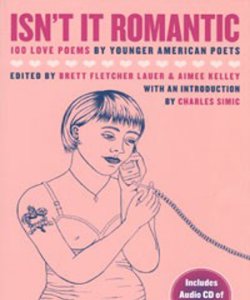
Despite the fluctuating aesthetics and ideologies espoused by critics, professors, and practitioners of poetry, there remain two general subjects that consistently offer poets inspiration: love and war; but with walentine’s Day just around the corner, three new anthologies of love poems are offering readers a respite from verse about violence.
Literary MagNet chronicles the start-ups and closures, successes and failures, anniversaries and accolades, changes of editorship and special issues—in short, the news and trends—of literary magazines in America. This issue's MagNet features Softblow, the Quarterly Literary Review Singapore, Poetry Billboard, the 2nd Rule, No Tell Motel, Boulevard, American Letters & Commentary, FIELD, Boston Review, Pleiades, Witness, and Gulf Stream.
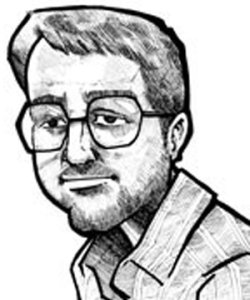
Despite the numerous prestigious awards given to published short story authors, recent news of short fiction contest administrators and judges failing to choose a winner have left emerging writers wondering, "What about me?"
How did I become a sestinas editor? It all began with a rejection letter. “Thanks for sending,” it read, “but we’re looking for more traditional, iambic pentameter sestinas."
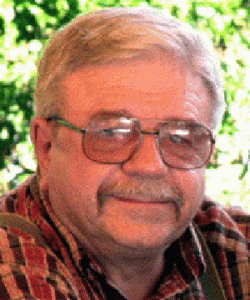
In the world of hip-hop, Lewis Turco would be considered an “Original Gangsta,” an “O.G.”—a title given to someone who started it all. In the more genteel business of poetry writing, however, Turco would be called an “Institution,” and what he started was nothing less than a renewed appreciation of poetic forms. Since its first edition in 1968, his reference book The Book of Forms has become a standard text for poets of all stripes. A cross between The Joy of Cooking and According to Hoyle for poets, Turco’s text remains a rarity: a reference book with personality. Turco’s lucid, empathetic entries on every form under the sun continue to serve many poets writing their first pantoums or settling drunken bets on the rhyme scheme of the rimas dissolutas (abcdef abcdef ghijlk ghijlk ..., if written in sestets).
Eleven years ago, JT LeRoy was a teenager living on the streets of the San Francisco Bay Area, turning tricks and suffering from dissociative episodes. Today, he is a critically acclaimed author whose first two books, the novel Sarah (Bloomsbury, 2000) and the collection of short stories The Heart Is Deceitful Above All Things (Bloomsbury, 2001), have been translated into more than a dozen languages—most recently, Turkish. His novella, Harold’s End, illustrated by renowned painter Cherry Hood, with an introduction by Dave Eggers, was recently published by Last Gasp, an independent press in San Francisco.
Page One features a sample of titles we think you'll want to explore. With this installment, we offer an excerpt from Torture the Artist by Joey Goebel.
When New Rivers Press announced that Ron Rindo of Oshkosh, Wisconsin, was a winner of the 2003 MVP Competition this past summer, some of the approximately six hundred entrants were perplexed. The guidelines stated that the contest, which awards three $1,000 prizes and the publication of three book-length manuscripts, was open to emerging poets, fiction writers, and creative nonfiction writers. Rindo, who won for his short story collection Love in an Expanding Universe, had previously published two books, both with New Rivers Press.